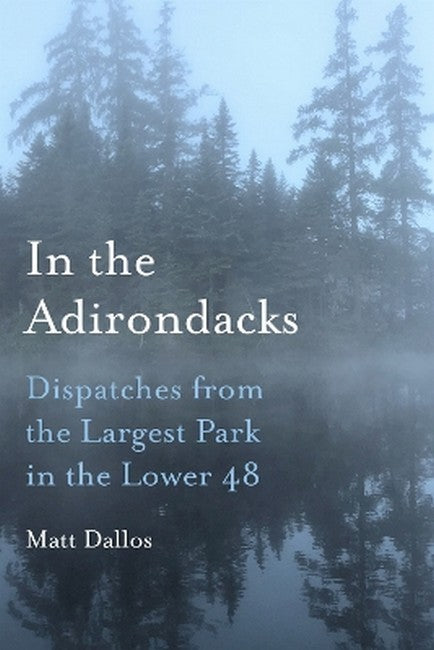Matt Dallos is a PhD candidate at Cornell University, where he teaches environmental writing seminars. He lives in the Finger Lakes of New York.
Request Academic Copy
Please copy the ISBN for submitting review copy form
Description
For Matt Dallos, the Adirondacks are most certainly his "place," and throughout his wonderfully readable and ambling recent book, In The Adirondacks, the reader feels his deep appreciation for the region that holds a powerful yet misunderstood place in the American cultural imaginary.-- "H-Net Reviews" In traveling and combing through "America's Switzerland," Matt Dallos pens a unique profile of the largest park in the lower 48. Dallos digs through research, both field and academic, to tell a better story of this land that is ever-changing and, in many ways, resistant to change. The Adirondacks, Dallos reminds us, serve as playground for one-percenters with place names like "Algonquin Whispers." But the park and its edges (there is no official entrance gate) also harbor poverty and white supremacy. This is not an Edenic portrait but a nuanced accounting of a land where, as Dallos informs us, there are only 130,000 people for six million acres. Mixed among the human drama are plenty of coyotes, birch trees, gray befogged slopes, the hermit of Cold River, 250 lakes, and countless American myths.---Clinton Crockett Peters, author of Pandora's Garden and Mountain Madness This is a great read for all, particularly those interested in conservation issues and the role of nature in the growth of American popular culture. Highly recommended.---L. T. Spencer, emeritus, Plymouth State University, Choice Editors' Picks In the Adirondacks is an earnest meditation on what Americans have made, for better and worse, of the land they call "wilderness". Dallos takes us on a freewheeling tour of what may be the largest temperate forest left in the world, which is also now a strange vacationland for flatlanders from America's biggest cities. Among all the neon signs and asphalt and campground bathrooms, he still finds the beavers and loons. Among a whole history of misguided development, he still finds reason to hope that humans are capable of harmony with the land they claim as their own.---Joshua Wheeler, author of Acid West

